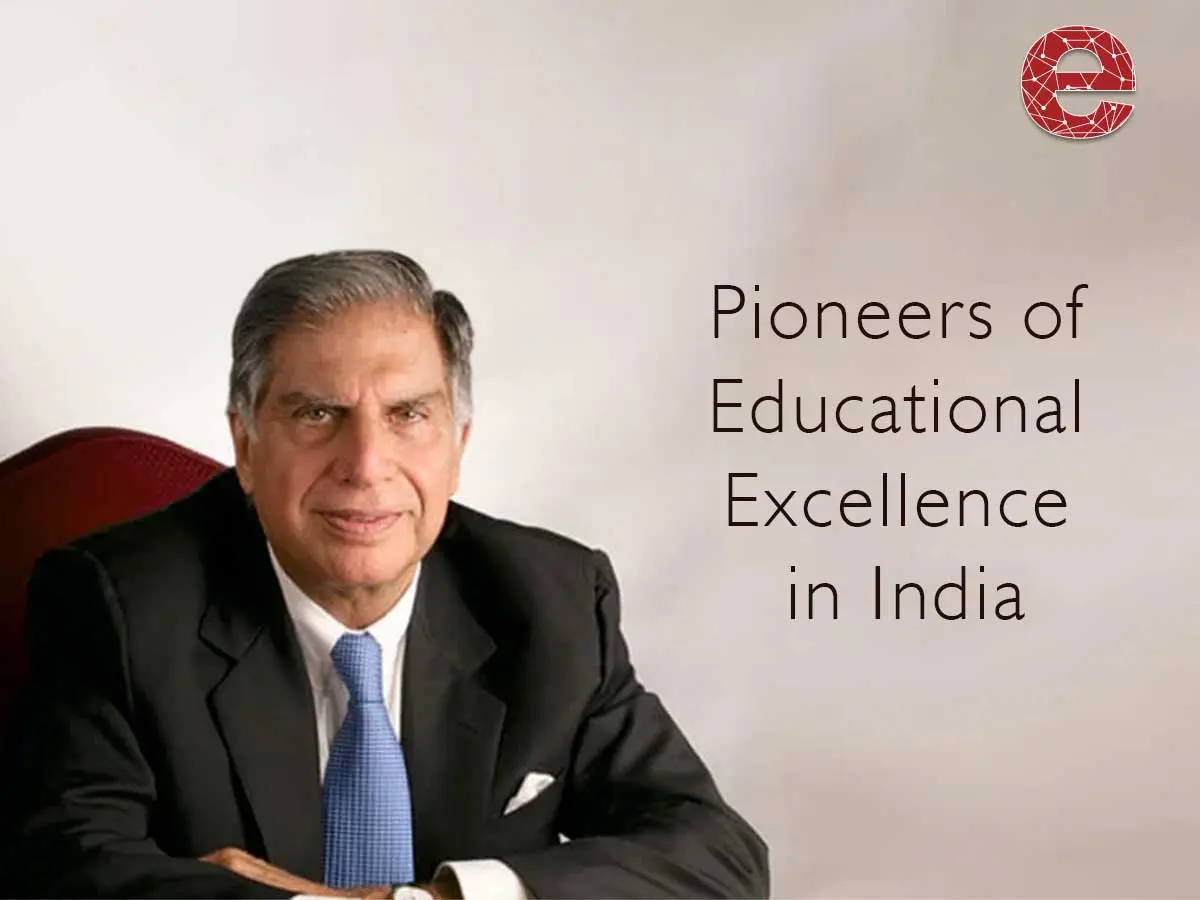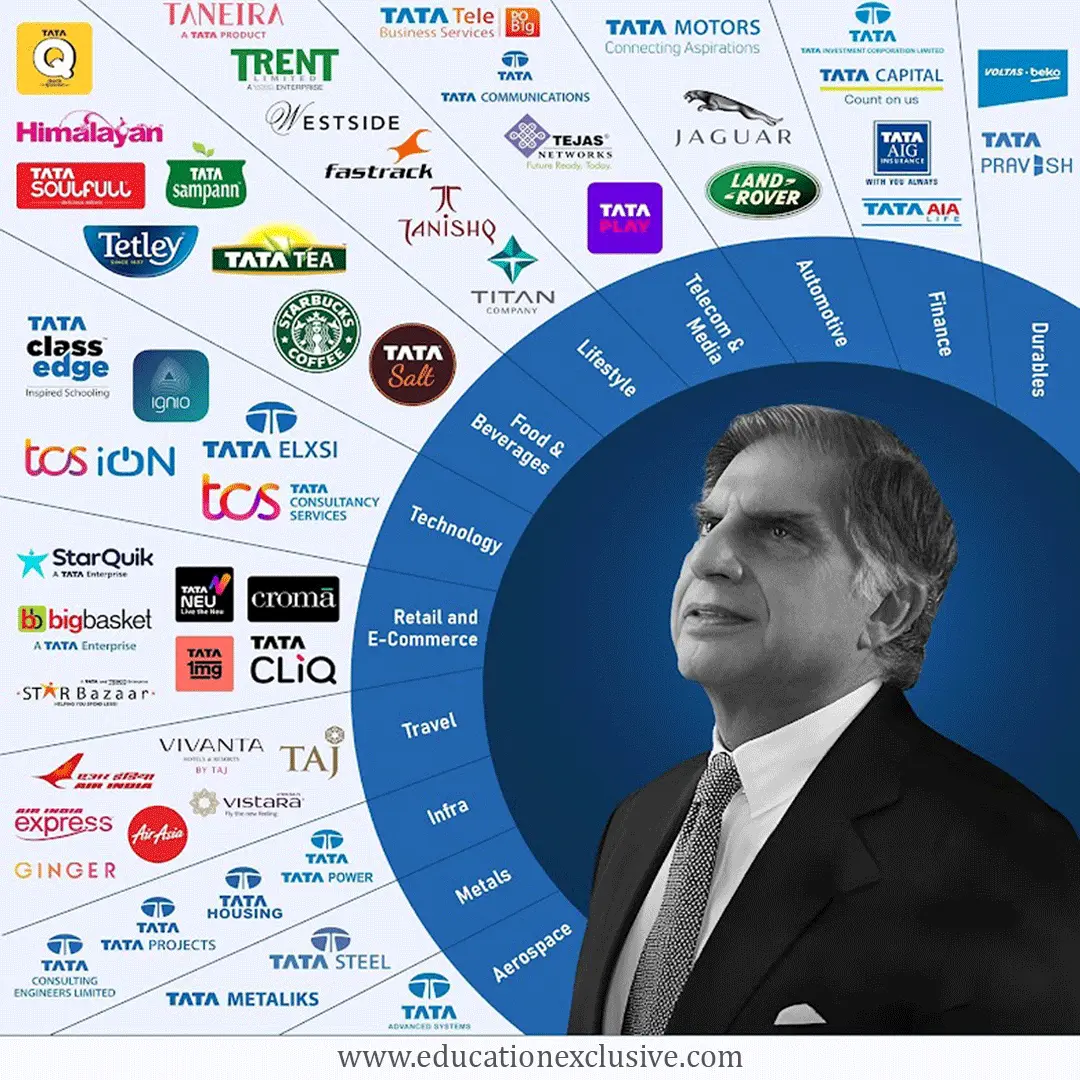Educating for Tomorrow: Tata Group's Impact on Society
Exclusive Insights

“If you want to walk fast, walk alone. If you want to walk far, walk together.” By Ratan Naval Tata
Inspired by Jamsetji Tata's vision, the Tata Group has continued building a nation by improving its citizens' educational attainment. The Tata Group has been dedicated to universal education by establishing exceptional educational institutions and implementing Tata Companies' initiatives to ensure that education is accessible to the most marginalised communities.
Institutes Founded by Tata Group
- Indian Institute of Science (IISc)
Established in 1909, the Indian Institute of Science (IISc) resulted from J.N. Tata's pioneering vision. Since then, it has evolved into a leading research and education institution, with over 2000 active researchers engaged in nearly every frontier area of science and technology. It is one of India's most prestigious and ancient centres, and it is also highly regarded in the academic community on a global scale.
India’s many eminent scientists such as Dr Homi J. Bhabha, the creator of India's nuclear program; Dr Vikram Sarabhai, the founder of India's space program; meteorologist Ms Anna Mani, biochemist and nutrition expert Dr Kamala Sohonie; and solid-state and materials scientist Dr CNR Rao.
- Tata Institute of Fundamental Research (TIFR)
The Sir Dorabji Tata Trust supported the Institute's establishment on 1st June 1945. The Institute commenced operations in the Cosmic Ray Research Unit on the campus of the Indian Institute of Science, Bangalore. Subsequently, it relocated to Bombay in October of the same year.
The Tata Institute of Fundamental Research (TIFR) has made many notable achievements, like;
- Discovery of cosmic rays
- Building India's first digital computer
- Discovery of smell and taste
- Discovery of atmospheric neutrinos
- Discovery of nanodomains on cell membranes
- Setting up the Ooty Radio Telescope
- Setting up the National Centre for Biological Sciences (NCBS)
- Tata Institute of Social Sciences (TISS)
The Nagpada Neighbourhood House was the site of the establishment of the Dorabji Tata Graduate School of Social Work in 1936, which provided professional training in social work. Its inaugural director was Dr. Manshardt. Although it was a diploma course, 400 applicants were for the 20 seats that were available in the first year. In 1944, it was renamed the Tata Institute of Social Sciences (TISS).
Tata Institute of Social Science Contribution to the Social Change:
- TISS has impacted policy reforms in the following areas: mental health, disaster management, child protection, and labour rights.
- TISS's research and advocacy have played a pivotal role in enhancing the livelihoods of marginalised communities in India, demonstrating the organisation's strong commitment to social change.
- TISS has partnered with numerous universities, government entities, NGOs, international agencies, and corporations. For instance, the International Federation of Red Cross and Crescent Societies (IFRC) and TISS offer an online certificate course on disaster management.
- National Centre for the Performing Arts (NCPA)
Inaugurated in 1969 by Mr JRD Tata and Dr Jamshed Bhabha, It was the first cultural centre in South Asia to feature a variety of genres and venues. The NCPA is dedicated to preserving and promoting India's vibrant artistic heritage in music, dance, theatre, film, literature, and photography. Additionally, the organisation presents new and innovative works by Indian and international artists from various genres, such as drama, contemporary dance, orchestral concerts, opera, jazz, and chamber music. The NCPA is India's largest and most comprehensive performing arts facility, hosting over 700 events annually.
Individual Grants provided by Tata Trust
- Means-Based Grant: This grant helps underprivileged children from grade 8th and above, who otherwise don’t have the means to complete their education up to the graduation level.
- Civil Aviation: This grant is specifically designed to assist civil aviation students who are interested in pursuing a commercial pilot licence course or completing a type rating after obtaining their licence.
- Scholarship Programme: This is the largest single programme and organised under five aspects.
- Medical and Health Care
- Masters in Neuroscience
- Masters in Speech Therapy
- B.Ed. and D.Ed.
- Aircraft Maintenance Engineering
- Research Scholarships: The Trusts offer support and encouragement to individuals who are actively engaged in research in a variety of fields, including pancreatic cancer, learning disabilities, and the teaching of mathematical skills at the primary school level.
- Spectrum Grants: These grants are available for areas of interest not covered above, such as music, athletics, and uncommon research. The initiative now includes learning disabilities as a focus.
- Professional Enhancement Grant: This program assists professionals in improving their performance by allowing them to participate in overseas observership programs (relevant to the medical community), training, and seminars.
- Medical Grants: The Tata Trusts have been providing financial assistance to economically underprivileged patients, primarily located in Mumbai, to cover the cost of hospital treatment through medical grants.
TATA Educational Schemes:
- Thousand Schools Programme: an initiative started by Tata Steel to enhance the quality of education in various regions. The program aims to establish a universalising elementary education (UEE)example.
- Vidyadhan and Utkarsha: This is Tata Motors' initiative to provide higher education for technicians and their dependents. Vidyadhan is administered as an education loan program, whereas Utkarsha is administered as a scholarship program.
- J.N. Tata Endowment: In 1892, Jamsetji Nusserwanjee Tata established a scholarship program. The program provides loan scholarships to Indian students pursuing higher education abroad.
- Lady Meherbai D Tata Education Trust Scholarship: A scholarship program that provides financial assistance to female graduates in social work, social science, public health, and the welfare of women and children for their overseas studies.
- Teacher Education Initiative: A program developed to make the fundamental literary abilities in the early primary grades.
- Kanya the Titan: Is the initiative to establish an environment conducive to the education and welfare of economically and socially marginalised females.
Not just in education but the Tata Group has thought and work for all category of people, they have introduced and invested in many companies like;

You can also Read:
- Tata Group
- Education
- Social Impact

